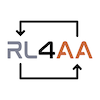Speaker
Description
Noisy intermediate-scale quantum (NISQ) computers work by applying a set of quantum gates to an initial ground state, to transform it into a final state that represents the solution to complex computational problems, such as molecular energy evaluation or optimising for the shortest routes in the travelling salesman problem. The effective realisation of NISQ computers requires the implementation of multi-qubit gates with high fidelity, and low leakage of information to surrounding qubits and higher energy levels. The adherence to these constraints is essential for achieving universal fault-tolerant quantum computing.
Quantum optimal control theory focuses on designing electromagnetic pulse shapes, which are transmitted to the qubits in order to precisely guide their evolution from an initial quantum state to a final state. While several quantum gate synthesis algorithms such as GRadient Ascent Pulse Engineering (GRAPE), Chopped RAndom Basis (CRAB) and Gradient Optimization of Analytic conTrols (GOAT) have been developed, they face scalability challenges as the number of qubits increases.
Recently, the quantum computing community has begun to explore Reinforcement Learning (RL) techniques as an alternative to quantum optimal control algorithms, however, none of these methods tune the pulse parameters directly. RL-based approaches involve an agent interacting with a simulated quantum environment by taking actions that modify the pulse parameters in either the time or frequency domain to achieve the desired quantum state transformation. The effectiveness of these transformations is mainly measured by the fidelity between the achieved quantum state and the desired state. This fidelity metric is integral to the feedback loop, serving as part of the reward mechanism for the RL agent. Other metrics, such as leakage to higher energy states of a qubits must also be taken into consideration for the development of efficient and fast gates.
| Possible contributed talk | Yes |
|---|---|
| Are you a student? | No |

